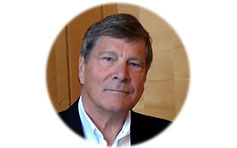
I have previously shared my thoughts about graduation speeches and mentioned several excellent examples. In that blog, I talked about the range of topics and advice in those speeches but I just read an essay by David Brooks—NYT, May 29, 2015, “The Small, Happy Life.’’—that I think enriches the discussion. David invited his readers to “send in essays describing their purpose in life and how they found it.” He “expected most contributors would follow the commencement speech clichés of our high achieving culture; dream big; set ambitious goals; try to change the world.”
To his surprise he found a recurring theme of people who aspired to the “small, happy life.” He shares examples of what this means in the voices of his readers and I recommend those stories to you. As human beings, we are story-tellers at our core. Mark Twain and Will Rogers are great reminders of the power of story telling. People talked about their families, their communities, their gardens. They spoke of being available to others in a time of need; listening to friends work through problems.
Many people who have lived through world wars or concentration camps, who have survived the worst the world has to offer, have a certain calm resiliency. People who have lived a long time and experienced much have gained perspective and wisdom. Research consistently shows that money does not buy happiness. Material success does not buy happiness. Research also shows that financial sufficiency does matter. But these are not themes in most graduation speeches, nor common in conversations with young people about what they want to be when they grow up.
So imagine a commencement address built on “The Small, Happy Life” concept. It might go something like this:
This week, this month, across America people like me are speaking to students as you graduate. We celebrate your accomplishment and most of us will tell you to reach high, dream big and have an impact. And most of these messages will envision an outcome involving hard work, fame, wealth, etc. For some of you that will be good advice and you should take it. But you probably already know who you are.
My message is different. You have all earned a great education and developed important friendships. Hopefully you have come to know yourself. Use that education and that self-knowledge to live a smaller, happy life. You will need to provide adequately for yourself and your family. That needs to be part of your plan. But research tells us that relationships matter to both your health and happiness. And relationships take time and attention. There is some truth in the old adage, people rarely lament on their death beds that they did not spend enough time in the office. I note that eulogies often extoll the humanity of the deceased, the contribution to family, to community, to church. The parents who raise great children and support our schools and communities; the children who care for their aging parents; the people who teach for America or serve in the Peace Corps; the volunteers who make our communities vibrant are heroes. For some of you the smaller, happy life will yield great dividends. Consider making that investment.
I am struck by the reality that in some ways there is no reason to give this advice because people find their way to this answer. David Brooks found that in the words of his readers. We observe that in the behavior of our fellow citizens, but sometimes it is worth saying out loud. Doing so validates this choice, and it deserves validation.

John A. Elliott
Dean, UConn School of Business
John A. Elliott is dean of the UConn School of Business, as well as the Auran J. Fox Chair in Business. John is a certified public accountant with professional experience as an auditor and consultant. His research is concentrated on the role of accounting information in financial analysis and contracts. When not attending his son’s athletic events or visiting his daughter and her family, John and his wife, Laura enjoy travel. John is also an avid fan of the UConn men’s and women’s basketball teams. View Posts